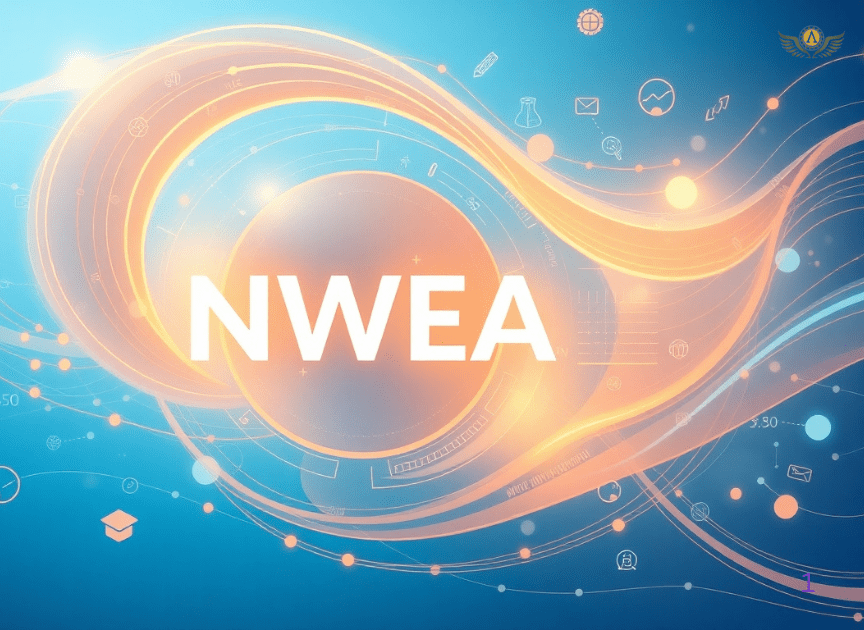The Northwest Evaluation Association (NWEA) is a nonprofit organization that empowers educators by providing research-based assessments and tools to improve student learning outcomes. With its flagship MAP Growth and MAP Reading Fluency assessments, NWEA serves schools and districts globally, helping educators tailor instruction to meet individual student needs.
This article explores the mission, key offerings, and contributions of NWEA to education, while providing a detailed overview of its assessments and their impact.
Table: Key NWEA Assessments and Features
| Assessment Name | Purpose | Key Features | Audience |
|---|---|---|---|
| MAP Growth | Measures academic growth over time | Adaptive, real-time data insights | K–12 students |
| MAP Reading Fluency | Assesses reading skills and fluency | Oral fluency, comprehension, automatic scoring | Early learners |
| MAP Skills | Pinpoints specific skill gaps | Personalized recommendations | Teachers and students |
| State Summative Tests | Meets state accountability standards | Standards-aligned, flexible delivery | District administrators |
| Children’s Progress Academic Assessment (CPAA) | Early learning evaluation | Interactive, engaging format | Pre-K to Grade 3 |
A Brief History of NWEA

NWEA was established in 1977 with a vision to revolutionize the way educators measure and support student learning. By introducing adaptive assessments, NWEA transformed traditional testing into a dynamic, student-centric approach. The MAP (Measures of Academic Progress) suite of assessments quickly gained traction for its ability to track individual student growth over time.
Today, NWEA supports over 10,000 schools and districts across the globe, serving millions of students annually. Its tools are backed by robust research, ensuring educators have reliable insights to inform instruction.
Key Features of NWEA Assessments
NWEA assessments stand out for their innovative design and practical applications:
- Adaptive Testing:
MAP Growth dynamically adjusts to a student’s responses, creating a personalized test experience that accurately reflects their academic level. - Actionable Data:
The assessments provide detailed reports that guide teachers in tailoring instruction to each student’s needs, ensuring no one is left behind. - Real-Time Progress Monitoring:
Teachers and administrators can track academic growth over time, identifying trends and making data-driven decisions. - Support for Diverse Learners:
From struggling readers to advanced students, NWEA tools cater to a wide range of learning abilities and needs. - Alignment with Standards:
NWEA ensures that its assessments align with state and national standards, supporting schools in meeting accountability requirements.
Impact of NWEA on Education
NWEA has made significant contributions to improving education outcomes:
- Promoting Equity:
By providing insights into individual learning needs, NWEA assessments help educators bridge achievement gaps and promote equity in education. - Empowering Educators:
The actionable data from MAP Growth and other tools enables teachers to make informed decisions, enhancing instructional effectiveness. - Driving Policy Changes:
NWEA’s research and advocacy have influenced education policies, particularly in the areas of assessment and student growth measurement. - Fostering Lifelong Learning:
By focusing on growth rather than proficiency alone, NWEA encourages a growth mindset among students, preparing them for long-term success.
Why Schools Choose NWEA
Educators and administrators trust NWEA for its commitment to student-centered learning. Here’s why:
- Research-Driven Approach: NWEA bases its tools on years of academic research, ensuring reliability and validity.
- User-Friendly Reports: The detailed yet intuitive reports simplify data interpretation for teachers and parents.
- Global Reach: Serving schools in over 145 countries, NWEA understands the diverse needs of educators worldwide.
- Continuous Improvement: Regular updates and innovations keep NWEA assessments aligned with evolving educational needs.
Conclusion
NWEA has become a cornerstone in modern education, enabling educators to unlock every student’s potential through precise, actionable data. By championing growth over proficiency and focusing on individual learning journeys, NWEA has transformed the education landscape. Its innovative tools and unwavering commitment to equity ensure that teachers and students alike have the resources they need to succeed.
Whether it’s a struggling reader finding confidence or an advanced learner reaching new heights, NWEA assessments pave the way for meaningful progress in classrooms worldwide.











